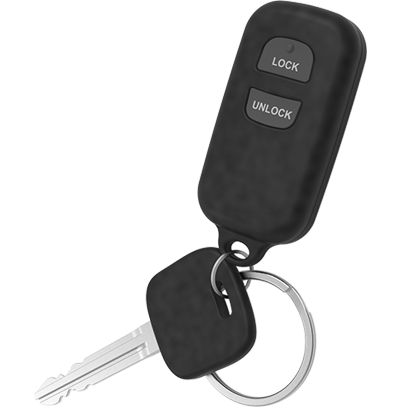When you’re considering used car financing in Alberta, you’ll need to meet certain requirements to secure approval. You’ll typically need to provide proof of income and a valid ID, while lenders will closely examine your credit history. If your credit isn’t great, you might even need to show a minimum monthly income. Understanding these prerequisites can significantly impact your financing options. However, the details around financial documentation and pre-approval could make a big difference in your experience. So, what steps should you take next to ensure a smoother financing process?
Understanding Financing Options
When it comes to financing a used car in Alberta, you have several options to consider. Traditional sources like banks and credit unions often offer competitive interest rates and terms, making them a reliable choice.
If you prefer convenience, online lenders provide quick pre-approvals and cater to a wider range of credit profiles, which can simplify the process.
You might also explore dealership financing, where in-house options come with promotional rates or incentives that could save you money. For those with less-than-favorable credit, alternative lenders might offer loans with more flexible terms, helping you get behind the wheel even if you have credit challenges.
Personal loans are another route, though they typically come with higher interest rates.
It’s essential to compare these financing options to find the best rates and terms for your situation. Consider getting pre-approved to increase your bargaining power when negotiating with sellers.
As you evaluate your choices, think about the flexibility of repayment options and the total cost of the loan, including any additional fees, to ensure you make a well-informed decision.
Assessing Your Budget
Before diving into used car financing, you need to assess your budget carefully. Start by evaluating your monthly income and expenses to see how much you can allocate toward a car payment.
It’s crucial to consider your financial stability and potential future income. You can use online calculators to estimate the total cost of ownership, which includes insurance, maintenance, fuel, and possible repairs. This will help you plan for additional expenses to avoid financial strain.
Next, factor in the insurance premiums based on the vehicle type and your driving history.
Don’t forget to estimate maintenance and repair costs, especially if the vehicle is older. Fuel costs will also vary depending on the car’s fuel efficiency and how much you plan to drive.
Registration fees and licensing costs are other expenses to keep in mind.
Exploring Loan Options
As you begin your search for used car financing, it’s essential to explore various loan options available to you. Traditional lenders like banks and credit unions often provide competitive interest rates, especially if you have a solid credit history.
They typically offer both fixed and variable interest rates, allowing you to choose what works best for your budget. However, be aware that their approval standards can be stricter, requiring higher credit scores and proof of stable income.
On the other hand, dealership financing might seem convenient, allowing you to secure a loan directly at the dealership. While they may offer promotional rates, be cautious of higher interest rates and additional fees that could add to your overall cost.
Online lenders can be a good option if you have less-than-perfect credit, providing quick pre-approvals from the comfort of your home. However, their rates may be higher than traditional lenders.
Lastly, alternative lenders cater to those who mightn’t qualify elsewhere, offering flexible terms but often at a higher cost. Carefully compare these options to find the best fit for your financial situation.
Navigating the Application Process
Finding the right financing option is just the beginning; navigating the application process is where the real work begins. To kick things off, you’ll need to assess your eligibility. Gather proof of income, like recent pay stubs or tax returns, and ensure you have a valid government-issued ID, such as a driver’s license or passport.
You’ll also need proof of residence, which can include utility bills or bank statements.
Next, prepare your documentation. This includes financial documents for income verification, your ID, and credit reports, as lenders often review these to determine your risk level. Completing the loan application forms accurately is crucial too.
Before submitting, evaluate your budget to understand what you can afford. Check your credit score to see how it impacts your options. It’s wise to compare interest rates from different lenders and consider getting pre-approved for a loan.
Special Considerations for Borrowers
When it comes to securing used car financing in Alberta, borrowers should be aware of several key considerations that can significantly impact their options.
If you have bad credit, lenders often require a minimum income of $1,800 per month, and they’ll need proof of income and employment history. Even if you’re receiving government assistance, that can count toward your application.
For those with no credit history, some loans, like RBC’s newcomer car loans, don’t require a Canadian credit history. You’ll need to provide identification, proof of residence, and proof of income, along with a valid driver’s license.
Newcomers to Alberta can also benefit from flexible financing options. Permanent residents arriving in 2021 or later can qualify for loans without needing a Canadian credit history.
Choosing the right lender is crucial, too. Traditional banks may require good credit, while online lenders might offer options for various credit profiles but could charge higher interest rates.
Be sure to review all available lender options, as specialized or alternative lenders might provide more flexible terms.
Conclusion
In conclusion, getting approved for used car financing in Alberta involves knowing your options, assessing your budget, and preparing your documents. By understanding your financial situation and exploring various loan options, you can enhance your chances of approval. Don’t forget to consider pre-approval, especially if you have bad credit, as it can give you a better idea of your budget. With the right preparation, you’ll be well on your way to driving your new car.



















